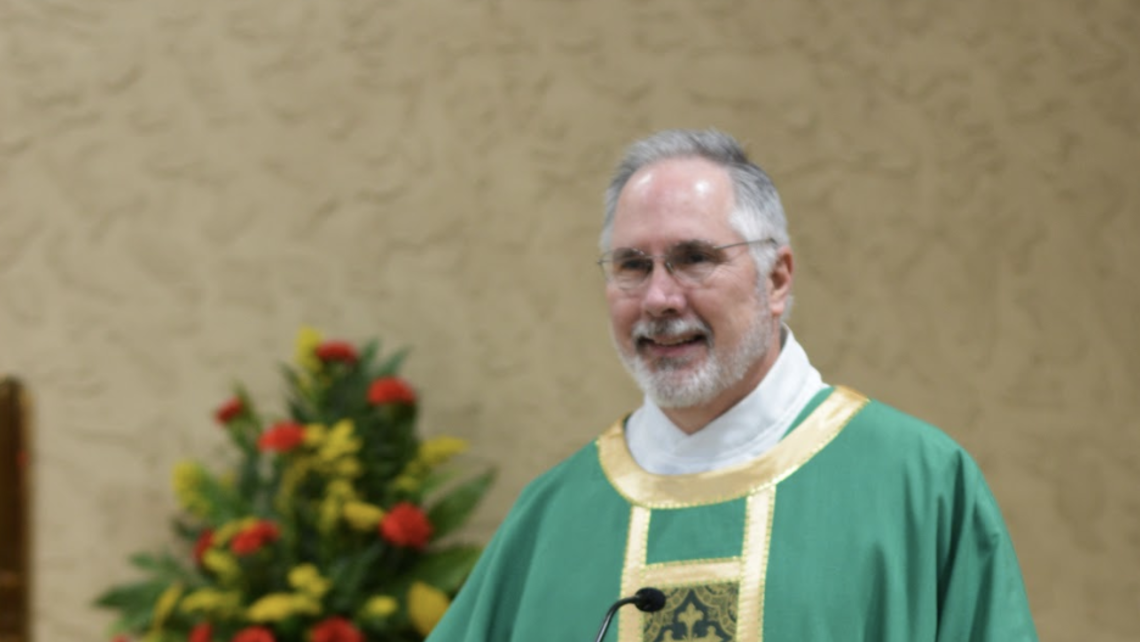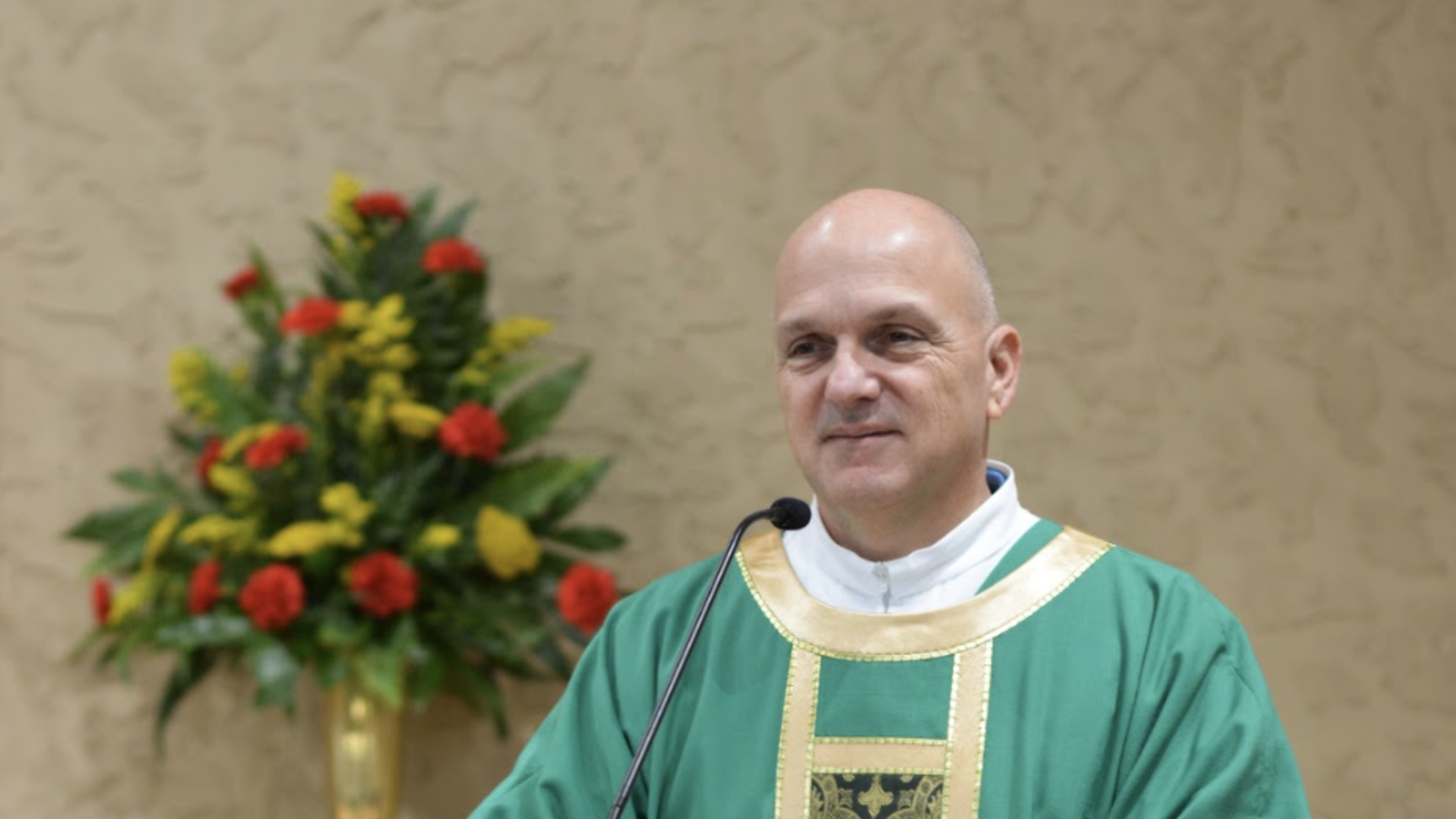
The prophet Isaiah gives us a beautiful image of the desert in bloom. Think of the desert: dry, desolate, and dead. Then with rain the desert blooms and there is life where before all was barren. This image speaks to Advent – that the Lord can cause our life to bloom. When there seems to be no hope, the Lord can bring life and abundance.
There are many who have lost hope in our society. Some couples are deciding not to have children because they see no hope for the world. Some youth of 10 or 12 are contemplating suicide. My dear brothers and sisters, we must bring our hope to the world. The prophet calls on us in the name of the Lord: “Strengthen the hands that are feeble, make firm the knees that are weak, say to those whose hearts are frightened: ‘Be strong, fear not – Here is your God, he comes to save you.” On Gaudete Sunday we rejoice that God is our strength and that we share that joy in evangelization: sharing the Good News.
Isaiah goes on to say that the eyes of the blind will be opened, the ears of the deaf be cleared; the lame will leap like a deer and the tongue of the mute will sing. The Lord wants us to be happy and whole but sin ruined the plan of God. That is why God sent Jesus – to restore us to wholeness. Where the prophet speaks the word of God – Jesus is the Word of God. Where the prophet speaks to the Mercy of God, Jesus incarnates the Mercy of God. Where sin alienates us from God and from one another, Jesus reconciles us to God and to one another.
Advent is a time when we consider how God wants the dry areas in our life to bloom – how Jesus wants to restore us to the fullness of Life. How can Jesus restore our sight? In the story of the prodigal son, the young man wanders from the love of his father and comes to realize that even the servants in the house of his father are better off than he is. The youth comes to see that he belongs with his father and when he returns home, his Father further restores his focus on never losing his family bond with his Father. May the Lord grant us the revelation and insight that we are daughters and sons of God.
How can Jesus cure our lameness? We have opportunities like the parish mission, like the Advent Penance Service to strengthen our spiritual life and our Christian witness. With family and friends visiting for the holidays we have many opportunities to express patience. Remember to be kind to strangers at Christmas Mass – even when they take your regular seat; we want these folks to return the following week. May the Lord strengthen us to walk in His ways and guide us along his paths.
We may not have leprosy but how can the Lord cleanse us of impurities? How is there selfishness in my life that causes me to place myself before others? Selfishness is like leprosy when it causes decay in our moral and spiritual life.
How can Jesus break through our deafness? We come to hear the readings at Mass but do we allow them to touch our minds and hearts and transform us? In the Ephatha prayer at baptisms we pray, “May the Lord soon touch our ears to hear his Word, and touch our mouths to proclaim his praise.
How can the Lord raise us to new life? Have our marriage and other relationships grown morbid? How has our love died and grown cold? Love is more than a feeling – it is a choice and the Lord invites us to invest more in the people we love.
How can our life be good news for the poor? Sometimes by living simply, we allow others simply to live. Let Christmas not be a time of materialism and chasing things but of discovering how we can make ourselves a gift to others. Jesus was born in a stable that in making himself poor we might become rich – how can we enrich the lives of others?
Our Gospel ends with Jesus praising John the Baptist as a prophet. How can we open ourselves to the prophets in our life? We know how King David sinned with Bathsheba and compounded his sin by sending her husband, Uriah, to the front lines of battle to be killed. God sent the prophet Nathan to confront the sin of David.
Nathan came to David and told the King a story. There was a very rich man who had a flock of sheep so vast they could not be numbered. Next to the rich man live a very poor man who had only one sheep but this one sheep was more precious to the poor man than the thousands of sheep of the rich man. The rich man, though he had more sheep than he could count – stole the sheep of the poor man and did away with the poor man himself. David was enraged, “Bring that man before me because he deserves to die!”
Nathan said, “You are that man! Though you live in abundance you stole what was most precious to Uriah, Bathsheba, and then did away with him.” David was stung with contrition and in that spirit wrote Psalm 51: “Have mercy on me O God in your kindness, in your compassion blot out my offense.” My dear brothers and sisters, we may not like the prophetic word that others speak to us, but sometimes it is the Holy Spirit calling us to renewal.


